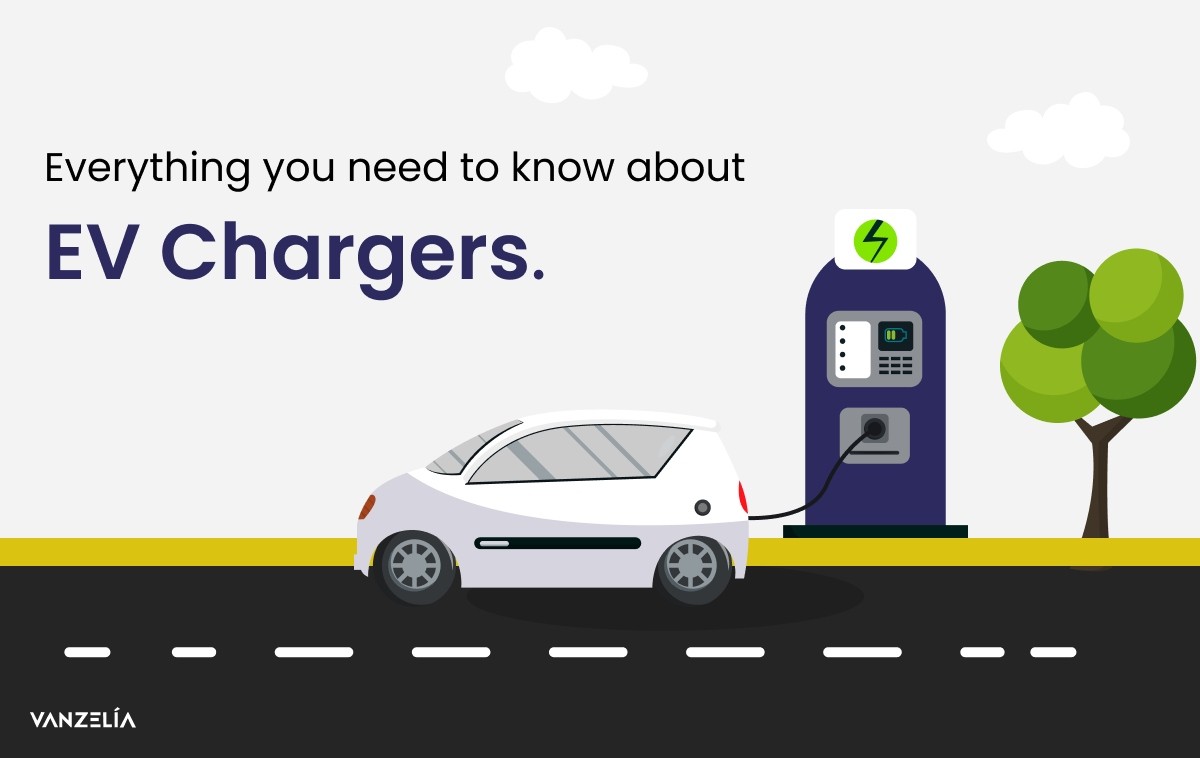As electric vehicles (EVs) gain popularity, understanding EV chargers is essential for both current and prospective EV owners. Efficiently charging your EV ensures you get the most out of your vehicle, minimizes downtime, and optimizes battery life. Here’s a comprehensive guide to EV chargers, covering types, installation, costs, maintenance, and choosing the right charger for your needs.
Types of EV Chargers
1. Level 1 Chargers:
Level 1 chargers use a standard 120-volt household outlet and offer a slow charging speed, adding about 2 to 5 miles of range per hour. These chargers are ideal for overnight home charging and are sufficient for drivers with short commutes or low daily mileage.
2. Level 2 Chargers:
Level 2 chargers use a 240-volt outlet, similar to those used for large appliances like dryers. They provide a faster charging speed, adding about 10 to 60 miles of range per hour, making them suitable for home use, workplaces, and public charging stations. Level 2 chargers are ideal for most daily driving needs, offering a good balance of speed and convenience.
3. DC Fast Chargers (Level 3):
DC Fast Chargers use direct current (DC) and require specialized, high-power equipment. They are capable of adding 60 to 100 miles of range in just 20-30 minutes. These chargers are typically found at public charging stations along highways and in urban areas, making them perfect for long-distance travel and quick top-ups.
Installation of EV Chargers
Home Installation:
- Level 1 Chargers: These chargers are easy to install; simply plug into a standard household outlet.
- Level 2 Chargers: Installation of a 240-volt outlet and possibly a dedicated circuit is required, which should be done by a licensed electrician.
- DC Fast Chargers: Typically impractical for home use due to high cost and power requirements.
Public Installation:
- Workplaces: Many employers are installing Level 2 chargers to support employees with EVs.
- Public Spaces: Level 2 and DC Fast Chargers are increasingly common in public parking lots, shopping centers, and along highways.
Costs of EV Chargers
Purchase Costs:
- Level 1 Chargers: Often included with the EV purchase.
- Level 2 Chargers: Range from $300 to $1,200, depending on features and brand.
- DC Fast Chargers: Significantly more expensive, typically ranging from $10,000 to $40,000.
Installation Costs:
- Level 1 Chargers: Minimal to no installation cost.
- Level 2 Chargers: Installation costs can range from $200 to $1,500, depending on the extent of electrical work required.
- DC Fast Chargers: Installation can be very costly and complex, often exceeding several thousand dollars.
Maintenance of EV Chargers
Regular Inspection:
- Check for wear and tear on the charging cable and connector.
- Ensure the charger is free from dust and debris.
Software Updates:
- Some chargers, especially smart chargers, may require periodic software updates for optimal performance and security.
Professional Servicing:
- For Level 2 and DC Fast Chargers, periodic professional inspections can help maintain efficiency and safety.
Choosing the Right EV Charger
Driving Habits:
- Evaluate your daily driving distance and charging needs. Level 1 chargers may suffice for short commutes, while Level 2 chargers are better for longer daily driving.
Budget:
- Consider both the upfront costs and potential installation fees. While Level 2 chargers are more expensive than Level 1, the faster charging time may be worth the investment.
Home Electrical Capacity:
- Ensure your home’s electrical system can support the additional load. An electrician can help assess and upgrade your electrical capacity if needed.
Features:
- Look for additional features such as Wi-Fi connectivity, scheduling capabilities, and energy usage tracking, which can enhance the charging experience.
Benefits of Home EV Chargers
Convenience:
- Charging at home eliminates the need to visit public charging stations regularly.
- You can take advantage of off-peak electricity rates by scheduling charging times.
Cost Savings:
- Home charging is generally cheaper than using public charging stations.
- Potential rebates and tax incentives may be available for installing home chargers.
Increased Property Value:
- Installing a home EV charger can increase the appeal and value of your property to potential buyers.
Conclusion
Understanding the various types of EV chargers, their costs, and installation requirements is crucial for maximizing the benefits of owning an electric vehicle. Whether you opt for the convenience of a home charger or rely on public charging infrastructure, staying informed will help you make the best decisions for your charging needs. At Vanzelia, we offer expert advice and professional installation services to ensure your EV charging experience is seamless and efficient. Contact us today to learn more about our EV charging solutions.

